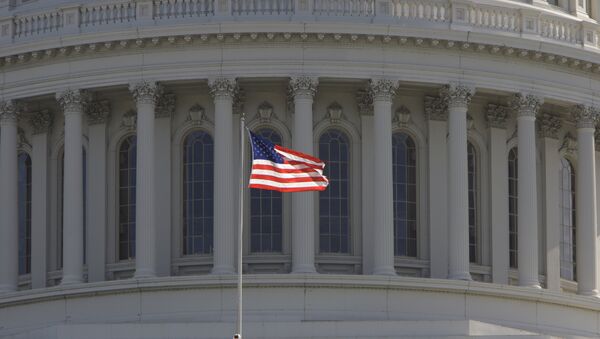WASHINGTON (Sputnik) — US Congressional opposition to the Iran nuclear agreement is undermining American credibility as well as President Barack Obama’s ability to implement the deal with Tehran, Iranian American Council Policy Director Jamal Abdi told Sputnik.
“By injecting uncertainty into the United States’ ability to implement a deal, Congress risks undercutting US credibility and in turn weakening US negotiating leverage,” Abdi said on Thursday.
If there are questions about President Obama's ability to deliver a deal against an opposition in Congress, Abdi argued, Iran may demand more concessions in order to cover that risk, and could seek to divide the P5+1 group of countries.
Congress’ attitude, Abdi added, hardens perceptions among Iranian elites that the negotiations are a trap, which could limit the flexibility of Iranian negotiators and drive up the cost of a bargain for the P5+1 group.
“However, if a veto is needed in order to protect a deal, this bodes poorly for any longer-term action by Congress to permanently lift sanctions,” Abdi noted.
On Tuesday, Obama reversed his previous position by agreeing that Congress will be able to approve a final nuclear deal with Iran. The Obama administration had argued previously that allowing the US Congress to approve a final deal would weaken the P5+1 negotiating position.
On April 2, the P5+1 countries, comprising the United States, France, China, Russia and the United Kingdom plus Germany, reached an interim deal with Iran for the country to reduce the number of centrifuges, decrease its uranium enrichment and refrain from building any new uranium enrichment facilities for at least 15 years.
Nuclear-related sanctions imposed on Iran will also be lifted after the International Atomic Energy Agency (IAEA) verifies the country's compliance with the deal.
The final comprehensive deal on the Iranian nuclear program is set to be reached by June 30, 2015.



